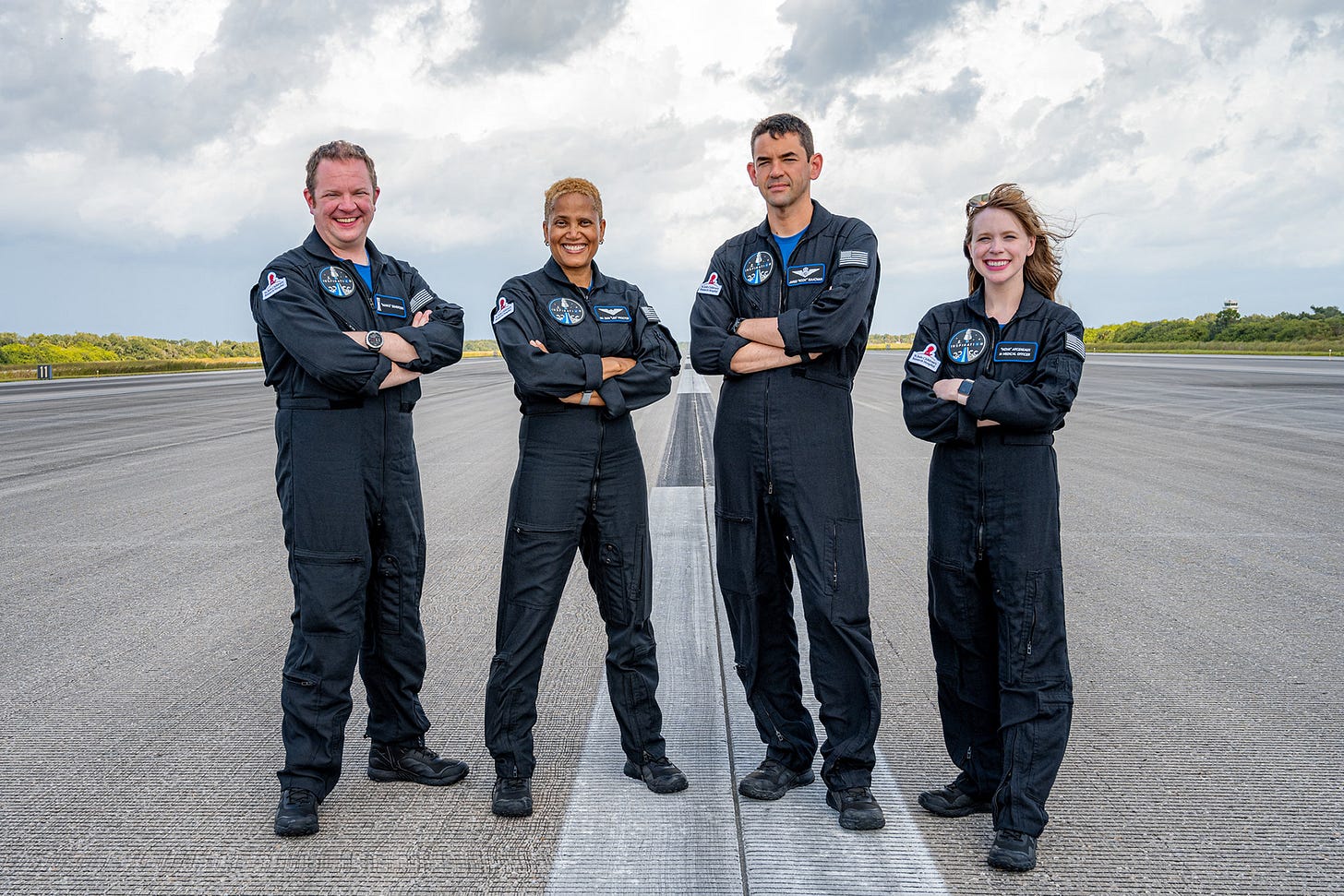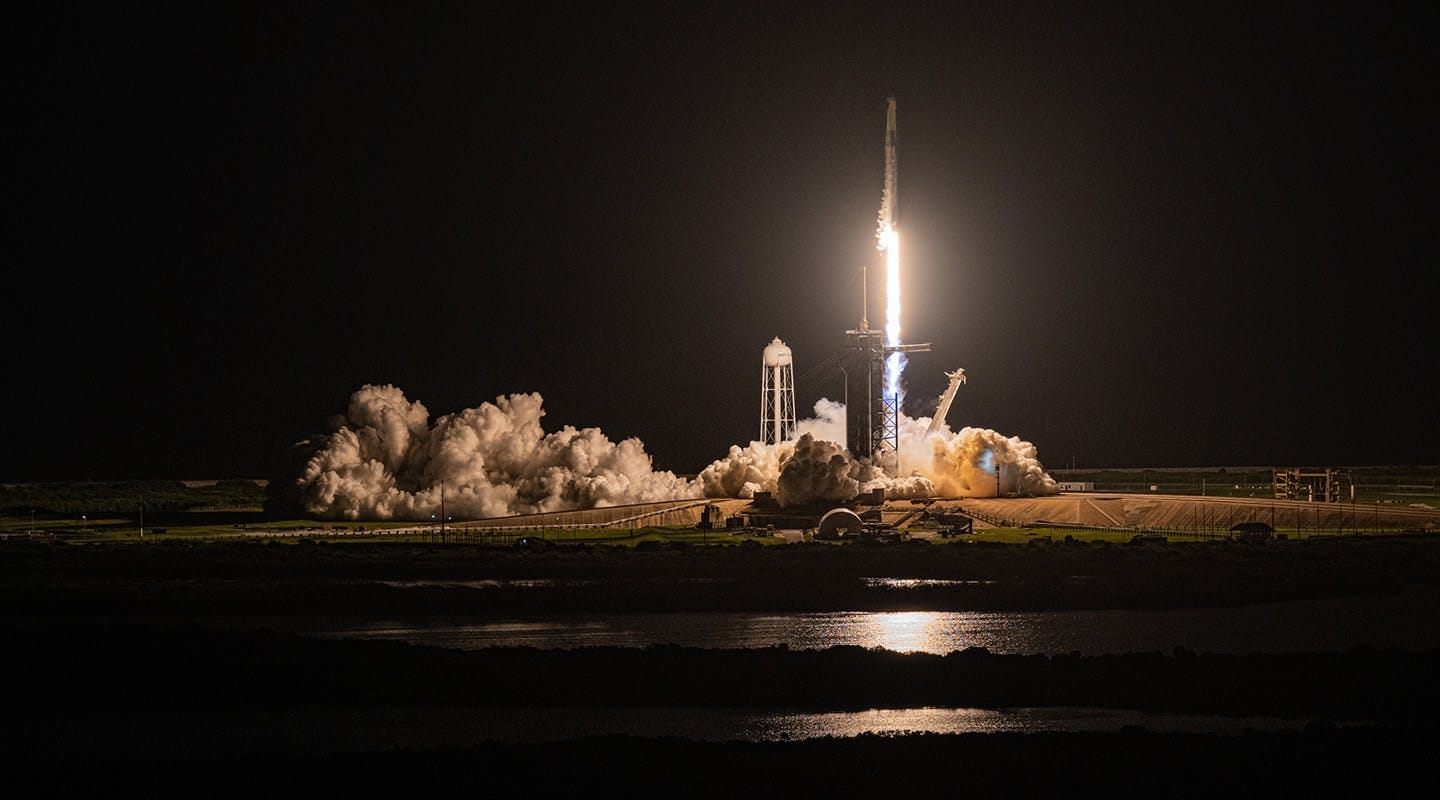How Can My Kid Become an Astronaut?
That’s what I asked a billionaire entrepreneur, pilot, and private astronaut. Here’s his answer.

How many of us wanted to be astronauts growing up?
If you were born in the 1980s (like me) or earlier, you probably remember lots of chatter from childhood about the Hubble Space Telescope, the Sojourner rover, Mir, the International Space Station, and the Shuttle program.
Of course, if you were born a decade or two before that, you remember even more: the Apollo missions that sent manned rockets to the moon, Voyager 1 and 2, Viking 1 and 2, and the initial Space Race that gave birth to the Space Age we now live in.
Being an astronaut was not really a childhood dream of mine, but it was a fantasy. I knew I’d never get to be an astronaut or walk on the moon, but I did imagine what it would be like from time to time. Lots of kids my age talked about it as well. It was a very cool career choice.
I remember TV shows constantly talking about how kids could do anything they wanted if they studied hard in school. Programs like “Reading Rainbow” made a direct connection, it seemed, between learning to read and do math and becoming anything you wanted “when you grow up… even being an astronaut!”
It was always fascinating to me how becoming an astronaut seemed the most difficult, improbable career choice: if you could become an astronaut, you’d be on top of the world! (Heh heh).
Being a firefighter was cool, being a police officer was cool… but an astronaut? That was outrageously cool.
I never quite figured out, though, HOW people became astronauts besides using their imagination, going to the library, reading lots of books, and doing their “times tables.” How did that get them into outer space?
I still think about that on occasion, and even after all this time, I still wonder what the exact steps are for becoming a professional space adventurer. Clearly, the one thing you need the most—which you have no control over—is an extraordinary amount of pure luck.
But really, aside from that, what else do you do?
Years ago, I met Astronaut Charlie Duke and heard him explain first-hand his experience in the Apollo program and what it was like collecting rocks and driving a car on the moon. That was pretty cool.
But these days, space missions are almost completely different, and the technology we use today is almost unrecognizable from what was used to put men in space back in 1972.
Recently, one of the accounts I follow on Twitter/X had a Q&A session with Jared Isaacman, a billionaire founder, pilot, and SpaceX astronaut. I sent in a question, and he was kind enough to answer it for me.
Here’s a transcript of my question and his answer (lightly edited for grammar).
Ron Stauffer: “What should kids study if they want to become an astronaut?”
Jared Isaacman:
“I think number one [is] aerospace medicine; health. I think being a medical professional is probably one of your best chances, honestly.
So, just in reality, 50% of all astronauts have space adaptation syndrome. And then there’s a laundry list of other things that go wrong at like 10%, 7%, 5%.
Space is very harsh on the human body and a lot of it’s physiological. There’s psychological elements to it too…
It’s kind of hard, right? Because up until recently, it’s just government astronauts: we got to keep up the “hero image” — which they are—but there’s a lot of gory details associated with it. We weren’t born to live in microgravity.
I mean, thank goodness, on [SpaceX] Inspiration4, we had a physician assistant as our medical officer, and we put her to great work. Haley did an awesome job. She dosed out two intramuscular injections and helped restore the crew to be happy, healthy, and productive.
But that’s going to be a reality, right? We’re not going to have the 737 of human space flight and have half the people throwing up. Because that’s going to make the other half feel pretty sick. And it’s going to take all the glory and glamor out of going and traveling in space.
And this gets way worse the longer you’re there. So, when we’re talking on long-duration trips to Mars and back, there’s a lot of things that are going to go wrong, and these aren’t 1% chances: these are like 50% chances, so they’re going to happen. You’re going to need people that are going to have to take care of it.
There’s not a lot of aerospace physicians and healthcare professionals. I think Harvard just stood up a fellowship in the last year, and we’ve gotten to meet some doctors there, but… it’s basically just been… a Houston Johnson Space Center-type program for doctors, and that’s not going to work when you have hundreds or thousands of starships. So, I think the medical field is going to be very strong.
Certainly, software and hardware engineers: you’re not going to be able to rely on the current mission control construct for commanding space flight the way it’s been up until now. You’re going to need far more onboard capabilities from a hardware structures perspective as well as software, where I think engineers can be in high demand.
And unfortunately, but it’s just in touch with reality again, I think the test pilot thing is going to have less and less relevancy. While I think the background for it is phenomenal and there’s a lot of ways you’re kind of adjusted to the environment quicker, the skillset is going to be less and less important.”
So… there you have it, folks!
According to a modern astronaut helping pioneer the manned missions to space, Mars, and beyond, if your kids want to become astronauts, you might help them study aerospace medicine, and/or become a software or hardware engineer. The days of test pilots dominating the field are over.
Today, it’s less about finding a way to get to the destination in the first place and more about making it possible to survive and stay healthy and comfortable while you’re getting there.
So, if any of my kids are reading this, go do your homework! Get good grades, keep reading like LeVar Burton said, and learn multiplication, but also take some medical classes if you can and see if you like medicine.
Eventually, we’ll probably see college courses like “space tourism” and “intergalactic hospitality,” but for now, we need medical doctors and tech nerds to get us there.
What a time to be alive.




